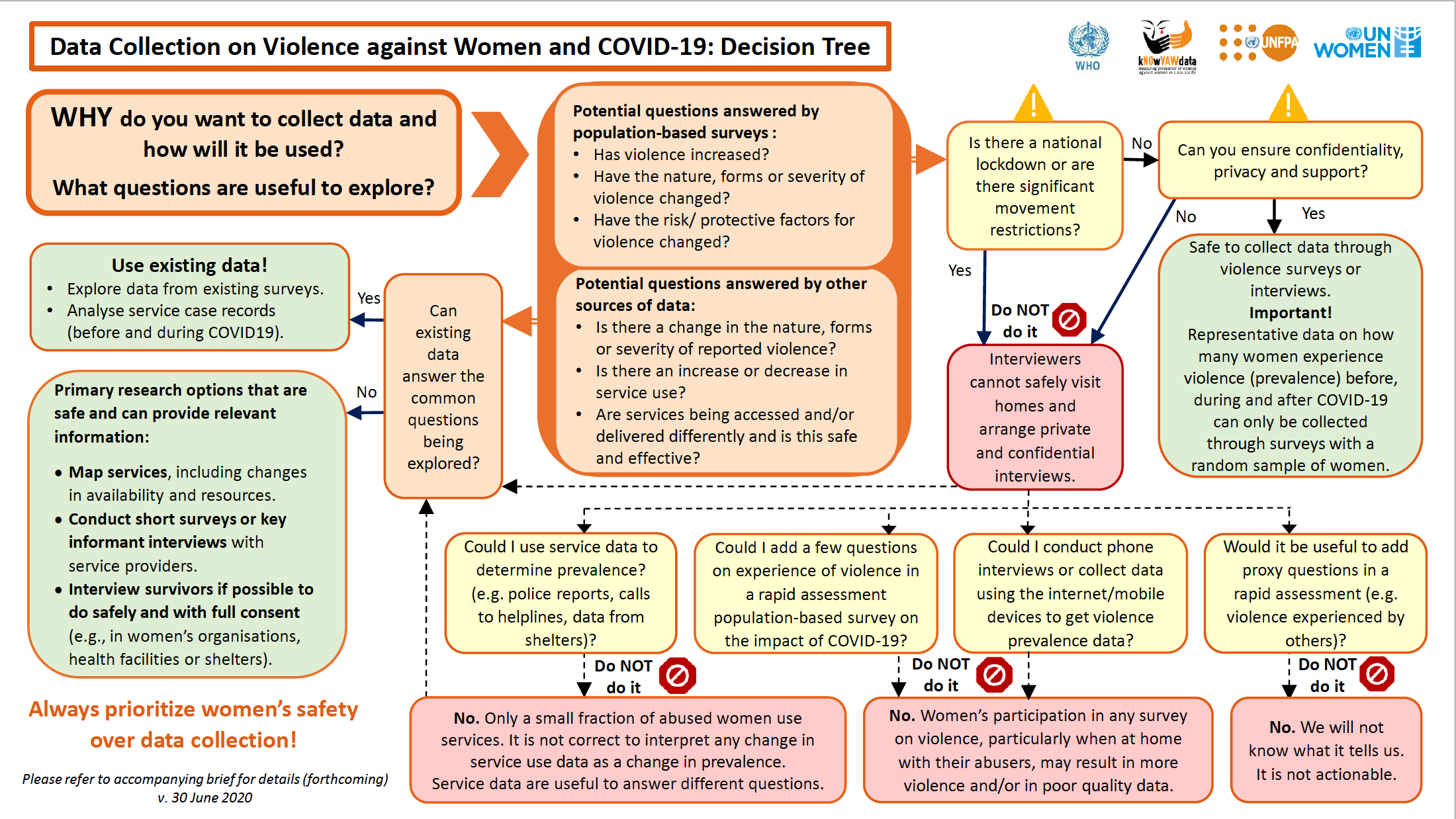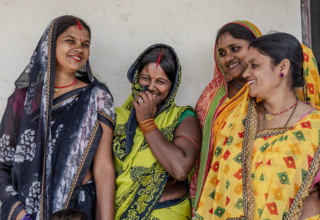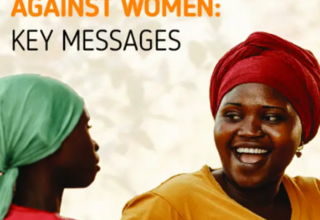This decision tree helps organisations with gender-based violence programmes, national statistical offices, policymakers and researchers decide when and how to best collect data on women's experiences of violence and their access and use of relevant services during the COVID-19 pandemic. Restrictions of movement mean women who experience violence are likely trapped at home with their abusers. Interviews with women who may be experiencing violence must be conducted in private to ensure both the quality of the data and the safety of the survey respondent, so it is extremely difficult to collect ethical and reliable data using population-based surveys during this period when men are home due to lockdowns or lost work, etc.
This decision tree guides data collectors through the various considerations, viable options and alternative data sources for obtaining information without jeopardising participants' safety or the data's integrity. In doing so, it aims to identify data sources and methodologies that are useful for strengthening services and referral pathways for women experiencing violence during COVID-19.
"Data Collection on Violence against Women and COVID-19: Decision Tree" was developed in collaboration with kNOwVAWdata, UNFPA Asia and the Pacific, UN Women and World Health Organization.
Remember: Always prioritise women's safety over data collection!
This resource is available to download in Arabic, Bahasa Indonesia, Bengali, Burmese, Chinese (Mandarin), English, French, Hindi, Khmer, Nepali, Russian, Spanish, Thai, Urdu and Vietnamese.
Want a tutorial? We invite you to watch this video as we walk through how to use this decision tree (closed captioning available).




